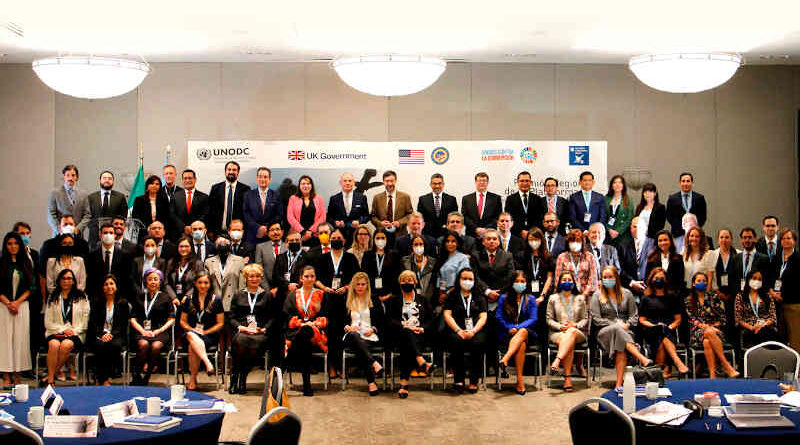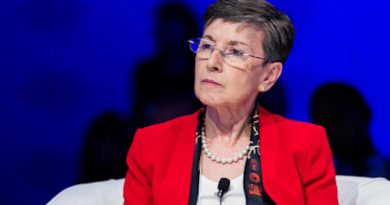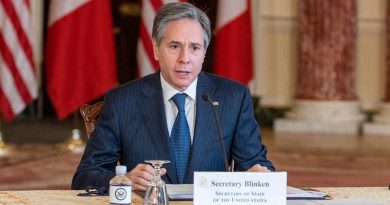UNODC Takes Steps to Counter Corruption in South America and Mexico

Specific activities have leveraged technology to advance transparency in public procurement and whistle-blower protection.
Integrity systems, legal liability, corporate compliance, whistle-blower protection and international cooperation were high on the agenda at an event in Mexico City. High-level officials and representatives of anti-corruption commissions, public procurement bodies and law enforcement authorities from ten countries across South America and Mexico gathered to take stock of their collective work in these areas.
Their meeting was part of a range of regional platforms created by the United Nations Office on Drugs and Crime (UNODC) to fast-track the implementation of the United Nations Convention against Corruption (UNCAC).
“Anti-corruption work has never been more important,” noted UNODC’s Brigitte Strobel-Shaw. “This event provides space for us to take stock of accomplishments so far and define together what our future anti-corruption work should look like. This year calls for strengthened action and implementation of global anti-corruption commitments.”
According to a UNODC statement of March 25, the event follows the February launch of UNODC’s Strategic Vision for Latin America and the Caribbean. The first of the Strategic Vision’s four priority investment areas and work streams for 2022-2025 is countering corruption and economic crime, and a key aspect is the development of a tailor-made regional anti-corruption initiative. This will be adapted at the national level and build on existing approaches, such as the regional platform for South America and Mexico to fast-track UNCAC implementation.
“We put corruption as a priority in our national agenda – we need to do the same regionally,” highlighted Eduardo Jaramillo, Director-General for the United Nations in the Mexican Ministry of Foreign Affairs.
South America and Mexico is one of four regional anti-corruption platforms established to find synergies, facilitate exchange of good practices, and strengthen coordination – both at the regional level and with other technical assistance providers. The others are in Eastern Africa, Southern Africa and Southeast Asia. Over the past nearly three years, the platform in South America and Mexico has led to strengthened anti-corruption action and a number of specific achievements in this region.
National anti-corruption strategies have been developed in Chile and Paraguay, and frameworks for the liability of legal persons are now in place in Bolivia, Peru, and Uruguay. Whistle-blower protection expertise in Brazil and Mexico has been strengthened, and risk-based approaches to detect corruption, including through the use of information technology, have been delivered to authorities from Bolivia, Chile, Colombia, Ecuador, Paraguay, and Peru.
Specific activities have leveraged technology to advance transparency in public procurement and whistle-blower protection through UNODC’s anti-corruption response and recovery project in Argentina, Brazil, Chile, Colombia and Paraguay.
Additionally, to support countries in taking forward their anti-corruption work, UNODC’s regional anti-corruption hub in Mexico has created a dedicated centre of expertise, supported by national and international experts, to rapidly respond to technical assistance requests.
This work on fast-tracking the implementation of UNCAC through regional anti-corruption initiatives has ultimately been made possible with support from the United Kingdom and the United States.






